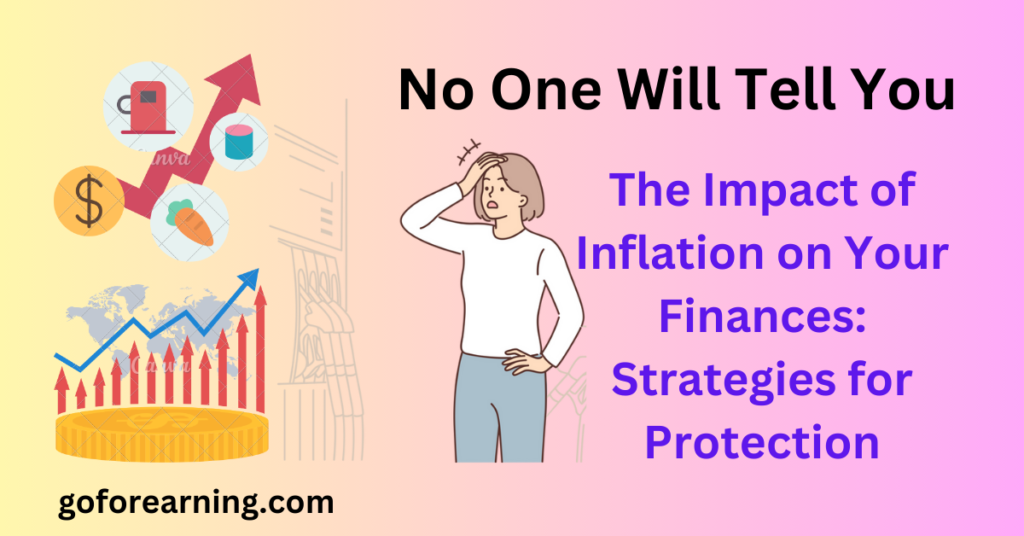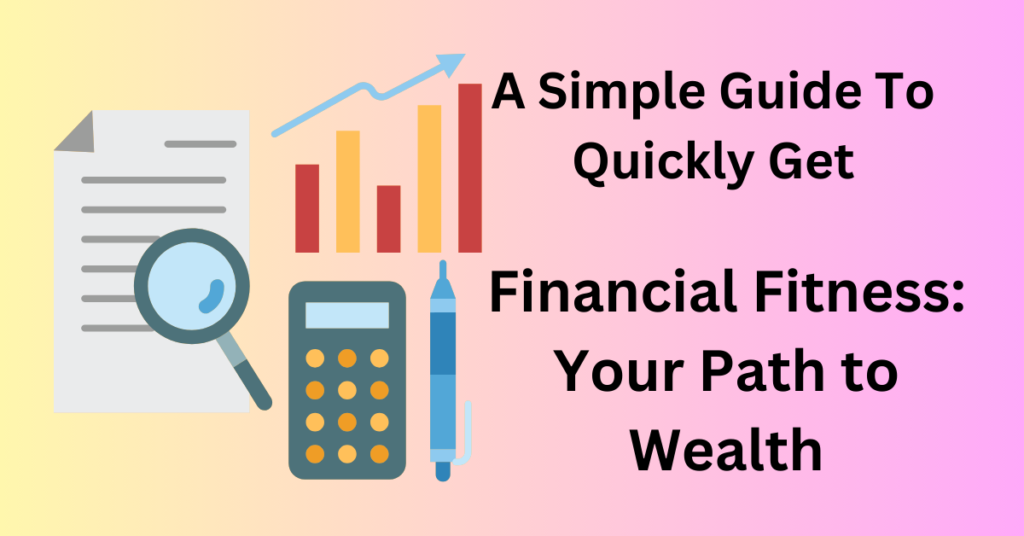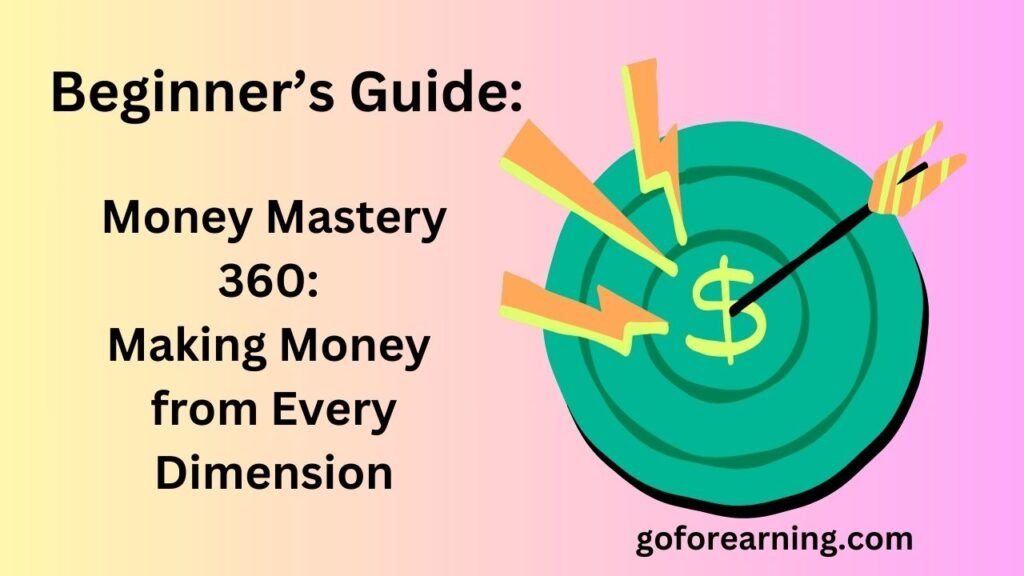These days, money problems can happen all the time, so it’s important to know how to handle your money well. To get from debt to dollars, you need to know your financial situation, make a plan that will work, and make decisions based on that information. Let’s look at a complete guide that will help you get through this process of change.
How to Understand Your Debt
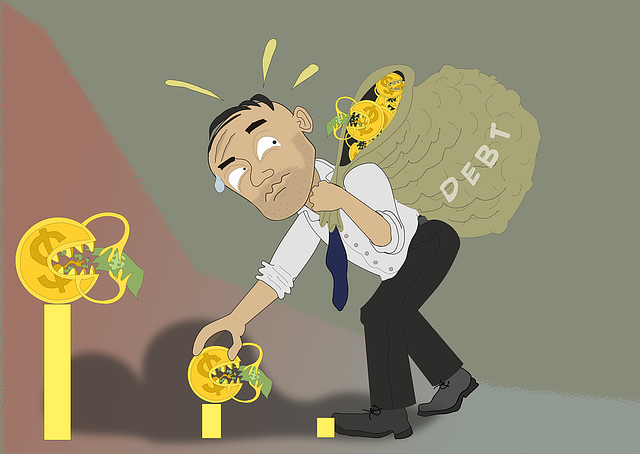
Before you start the process of getting out of debt, you need to know what kind of debt you have. Sort your loans into groups, separating the ones with high interest rates from the ones with better terms. Look at how interest rates affect you because that will change how you plan to pay back your debt.
Creating a Budget
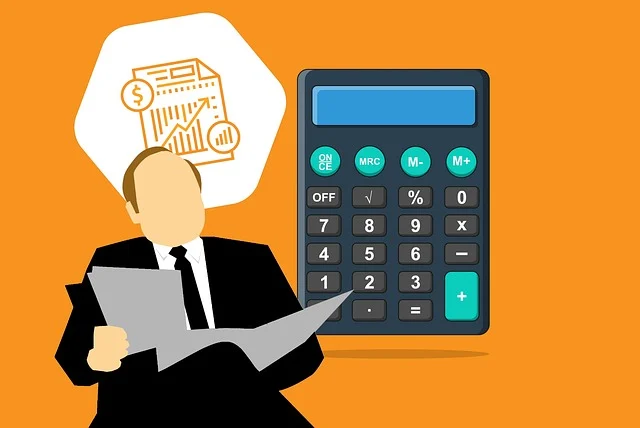
Making a budget is one of the most important things you can do to better manage your money. This isn’t about limiting yourself; it’s about taking charge and becoming more aware. Make a list of your income, set aside money for necessary costs, and save some for savings and paying off debt. A well-organized budget can help you reach your financial goals.
Strategies for Paying Off Debt
Check out effective ways to pay off your debt, such as the “snowball” or “avalanche” methods. With the “snowball” method, you pay off smaller debts first, and with the “avalanche” method, you pay off your highest-interest debts first. Also, think about debt consolidation choices to make payments easier and maybe even lower your interest rates.
Building an Emergency Fund

Unexpected financial problems can happen, which shows how important it is to have a backup fund. By regularly saving a part of your income, you can build up a financial cushion that will give you peace of mind when things get tough.
Putting money into the future
To get out of debt, you need to think about the future. Learn about basic business principles and how to balance risk and return so that you can make smart financial choices. Your investments can turn into a good way to make money and improve your general financial health.
Generating Additional Income
Look for ways to make extra money by doing side jobs or making the most of your hobbies. Using your interest to make money can help you get out of debt faster and add to your main source of income.
Managing your credit score
If you have good credit, you can get better cash deals. Learn how your credit score is determined and do what you can to raise it and keep it high. This means making payments on time, using credit wisely, and keeping an eye on your credit record.
Smart Ways to Spend Money
Find and get rid of costs that aren’t necessary. You can be cheap without lowering the quality of your life. Having good buying habits is a big part of being able to save money and stay financially stable.
Resources and education on money matters
If you want to learn more about money, use online tools. A lot of tools can help you learn how to budget, trade, and handle your debt. When you need to, talk to a professional to make sure that the money choices you make are in line with your goals.
Watching and Making Changes What You Want To Do
Plans for money don’t stay the same. Look over your plans and goals often and make changes as needed. Be proactive about how you adapt to changes in your finances or the economy.
Marking Important Milestones
Celebrate and recognize the things you’ve done well along the way. Whether you’re hitting a saves goal or paying off a big chunk of your debt, noticing your progress makes you more likely to keep up good money habits.
Dealing with Economic Problems
Diversifying your income lines and keeping a financial safety net will help you get through tough economic times. Being flexible is important if you want to deal with problems and stay on track with your financial goals.
Making plans for retirement
Plans for retirement can be made at any time, even if it seems far away. To make sure you have a safe and happy retirement, start saving for it, look into different investment choices, and maybe even talk to a financial adviser.
In short,
Ultimately, going from debt to dollars is a life-changing process that needs dedication and careful planning. You can get out of debt, make a budget, and use good money-saving techniques to become financially free. To make sure you have a safe and successful financial life, remember to celebrate important events, be flexible, and plan for the future.
What is a good debt?
A “good debt” is often defined as borrowing money for an investment that has the potential to rise in value or create income over time. In other words, it is a loan taken for a cause that will benefit your overall financial status. Here are some instances of what can be called excellent debt:
Education Loans:
Borrowing money to further your education might be considered positive debt if it leads to increased earning potential and professional options.
Mortgage:
Borrowing money to purchase a house is often seen as positive debt since real estate has the ability to increase over time. Furthermore, owning a house may bring stability and may provide tax benefits.
Business Loans:
If you borrow money to establish or build a company and it succeeds, the debt may be seen as an investment with a favorable return.
Investment Loans:
Some individuals take out loans in order to invest in stocks, bonds, or other financial products. While this is hazardous, if the assets perform well, the rewards may offset the financing expense.
It’s crucial to remember that the “goodness” of debt is determined by a variety of variables, including your capacity to manage repayments, interest rates, and possible returns on investment. Even “good debts” should be addressed with prudence, and people should carefully analyze their personal financial conditions and ambitions before incurring any debt. Furthermore, regardless of the purpose of the loan, responsible debt management is critical for maintaining a healthy financial profile.
What is the best way to manage debt?
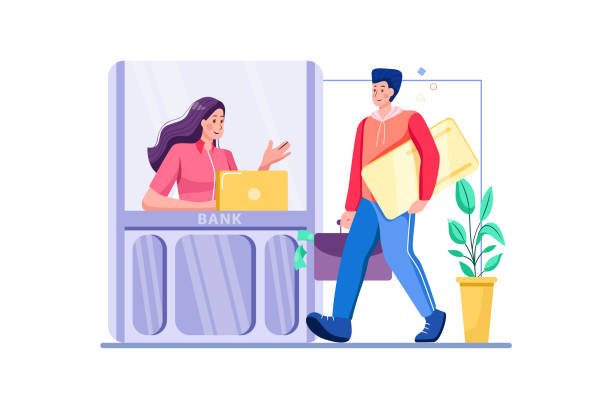
Effectively managing debt is crucial for maintaining financial stability and well-being. Here are some strategies to help you manage debt:
Create a Budget:
- Assess your income and spending to build a budget that is reasonable.
- Allocate a portion of your income to debt repayment while covering essential expenses.
Prioritize High-Interest Debt:
- Focus on paying off high-interest debt first to minimize the overall interest paid.
- Consider consolidating high-interest debts with a lower-interest option if possible.
Emergency Fund:
- Create an emergency fund to meet unforeseen expenditures, decreasing the need to depend on credit during a crisis.
Negotiate Interest Rates:
- Contact creditors to negotiate lower interest rates, especially if you have a good payment history.
Snowball or Avalanche Method:
- Choose a debt repayment strategy, such as the snowball method (paying off the smallest debts first for psychological satisfaction) or the avalanche method (tackling debts with the highest interest rates first for cost savings).
Cut Unnecessary Expenses:
- Identify and cut non-essential expenses to free up more money for debt repayment.
Increase Income:
- Explore ways to boost your income, such as a part-time job, freelancing, or selling unused items.
Automate Payments:
- Set up automatic payments to ensure you never miss a due date, avoiding late fees and maintaining a positive credit history.
Seek Professional Advice:
- Consult with a financial advisor or credit counselor for personalized guidance on debt management.
Stay Committed:
- Stick to your debt repayment plan, and be patient and persistent. It takes time to reduce and eliminate debt.
Educate Yourself:
- Understand the terms of your debts, including interest rates and fees, and stay informed about financial management strategies.
Avoid Taking on New Debt:
- Resist the temptation to accumulate new debt while working on repaying existing obligations.
Remember that debt management is a long process that requires discipline and foresight. Reassess your financial status on a regular basis and alter your strategy as appropriate. If you are having difficulty managing your debt on your own, obtaining expert help may give vital insights and support.
How to turn debt into money?

While it is not feasible to physically transform debt into money by earning more wealth from owing money, there are certain techniques you may take to better your financial status and strive toward financial stability:
Invest in Income-Generating Assets:
- Invest any remaining cash in assets with the potential to create income, such as stocks, bonds, real estate, or a small company. These investments’ profits may be used to pay off debt over time.
Side Job or Part-Time Work:
- Look into side hustles, part-time jobs, or freelancing to supplement your income. The additional money might be used to pay off debt.
Debt Settlement Negotiation:
- In certain cases, you may be able to reach an agreement with your creditors to pay a lower sum to repay the obligation. This is increasingly typical in times of financial difficulty.
Debt Refinance or Consolidation:
- Think about refinancing or consolidating high-interest debt to reduce your total interest rate, perhaps lowering monthly payments and freeing up more money for other uses.
Sell Unused Assets:
- To create income, sell goods you no longer need or utilize. This might include personal items, gadgets, or other valuable goods.
Make Money from Your Hobbies or Skills:
- Consider monetizing any talents or interests that others may find useful. Offering services, teaching, or selling handcrafted items are all examples of this.
Make a Debt Repayment Strategy:
- Create and stick to a structured debt payback plan. Set aside a percentage of your earnings for debt repayment.
Investigate Government Assistance Programs:
- In certain circumstances, government aid programs or charitable groups may be able to give financial help or debt relief.
Seek Professional Help:
- Speak with a financial adviser or credit counselor to discuss choices that are targeted to your individual circumstances.
It is critical to approach these tactics with prudence and to weigh the risks and advantages. Often, converting debt to cash requires a mix of rigorous financial management, improved income, and clever utilization of existing resources. If you are suffering major financial difficulties, consulting with a financial expert may give vital insights and help.
What are 3 ways to eliminate debt?
Debt elimination requires a mix of self-discipline, strategic planning, and financial management. Here are three excellent debt-reduction strategies:
Debt Snowball Method:
Pay off your smaller obligations first, while making minimal payments on bigger ones. When the lowest debt is paid off, the amount you were paying on it gets rolled into the next smallest loan. This has the effect of creating a “snowball” effect, progressively increasing the amount you may contribute towards greater bills. Paying off lesser debts might create psychological desire to handle bigger ones.
Debt Avalanche strategy:
This strategy includes ranking debts depending on their interest rates. Begin by paying off the loan with the highest interest rate first, while making just the minimum payments on the others. After you’ve paid off the highest-interest loan, go on to the next one. This strategy reduces total interest paid, perhaps helping you to pay off loans faster.
Consolidation of Debts:
Debt consolidation is the process of consolidating various loans into a single, lower-interest loan. This may simplify payments while perhaps lowering your total interest rate. Debt consolidation may be accomplished via a personal loan, a balance transfer credit card, or a home equity loan (if you own a property). To guarantee that the consolidation option is a cost-effective choice, thoroughly analyze the conditions and costs connected with it.
Remember that regardless of the strategy you employ, it is critical to address the core reasons of the debt and build excellent financial habits to avoid future debt accumulation. Creating and adhering to a budget, eliminating needless purchases, and saving for emergencies are all essential components of effective debt removal. If you are having difficulty managing your debt on your own, obtaining advice from a financial adviser or credit counselor may give tailored support.
Which debt to pay first?
There are two main ways for determining which debts to pay off first: the debt snowball method and the debt avalanche method. Each approach has advantages and disadvantages, and the decision is based on your particular tastes and financial condition.
Debt Snowball Technique
- The debt snowball strategy requires you to prioritize paying off the lowest obligations first, regardless of interest rates. The goal is to build momentum and drive by swiftly paying off minor obligations. When the smallest debt is paid off, the amount paid on that loan is rolled into the next lowest debt, and so on.
Advantages:
- Psychological satisfaction: Quick victories may create a feeling of success and drive. • Reduces the number of creditors, which simplifies debt management.
Considerations:
- If higher-interest obligations are not prioritized, you may end up paying more interest overall.
Debt Avalanche Technique
- The debt avalanche technique prioritizes debts based on interest rates. You begin by paying off the loan with the highest interest rate first, while making minimal payments on the remainder of your bills. After paying off the highest-interest loan, you move on to the next highest-interest obligation.
Advantages:
- Reduces total interest paid over time, perhaps saving money in the long term.
Considerations:
- Paying off the initial debt may take longer, and some people may find it less motivating than the debt snowball technique.
Choosing the Best Approach
- Psychological Factors: If motivation is important to you, the debt snowball strategy may be more tempting because of the fast gains.
- Financial Efficiency: If you want to pay as little interest as possible, the debt avalanche strategy is often more efficient.
It’s vital to remember that the ideal strategy is one you can follow to regularly. Whatever technique you use, the important thing is to stick to your debt repayment plan and make regular payments. Additionally, to prevent late fines and bad effects on your credit score, always make at least the minimum payments on all of your accounts. If you’re having trouble deciding, you might seek consultation from a financial planner or credit counselor for specialized advice based on your individual financial position.
How much debt is bad?
The determination of whether a certain amount of debt is “bad” is based on a number of criteria, including an individual’s financial condition, income, and capacity to handle debt. Here are some points to ponder about debt and why it is often seen as possibly problematic:
Debt-to-Income Ratio:
- The debt-to-income ratio is a typical metric for determining whether debt is sustainable. To get this proportion, divide your total monthly debt payments by your gross monthly income. A high debt-to-income ratio may suggest that a large amount of your income is being used to service debt, which may put a pressure on your financial resources.
High-Interest Debt:
- High-interest debt, such as credit card debt or payday loans, may be especially troublesome. High-interest debt builds rapidly and may lead to a difficult-to-break debt cycle.
Lack of Emergency Fund:
- Relying on debt to meet unforeseen expenditures rather than establishing an emergency reserve might lead to financial insecurity. When confronted with unanticipated situations, those without resources may resort to credit cards or loans, creating a debt cycle.
Risk of Default:
- Excessive debt raises the possibility of payment default, which may have catastrophic implications. Loan default might harm your credit score, making it more difficult to get favorable interest rates in the future.
Stress and Mental Health:
- High amounts of debt may cause stress and have a bad influence on mental health. Debt and financial insecurity may cause anxiety and other emotional difficulties.
Opportunity Cost:
- Devoting a considerable amount of one’s salary to debt payment implies less money for saving, investing, or other financial objectives. This potential cost may stymie wealth creation and financial independence.
While certain forms of debt, such as a mortgage for a house or a student loan for education, are more acceptable and may even be seen as future investments, it is critical to handle debt prudently. Debt becomes an issue when it becomes unmanageable, causes financial stress, and gets in the way of long-term financial objectives.
Individuals must routinely analyze their financial condition, make a budget, and devise a strategy to pay off high-interest debt. Seeking expert financial counsel may give recommendations targeted to your individual circumstances. Responsible debt management entails borrowing within your means, knowing the conditions of your debts, and developing a repayment plan.
Why is debt bad?
Debt is not necessarily “bad,” and when handled correctly, it may be a beneficial financial tool. However, debt may become an issue for a variety of reasons, including:
Interest Charges:
- Borrowing money usually entails paying interest. High interest rates may add large expenses to debt over time, making it more costly and sometimes impossible to manage.
Default Risk:
- Failure to satisfy your debt commitments might result in default. Loan default may result in late penalties, credit score loss, and, in extreme circumstances, legal implications.
Financial Stress:
- Having a large amount of debt might add to financial stress. Constantly worrying about paying payments and managing debt may have a bad influence on one’s mental health and well-being.
Limited Financial Freedom:
- High amounts of debt might restrict your financial independence by consuming a large part of your income in debt payments. This might limit your capacity to save, invest, or pursue other financial objectives.
The Opportunity Cost:
- When income is used to pay debt, less money is available for saving, investing, or spending on other objectives. This opportunity cost might be detrimental to wealth creation and financial freedom.
Impact on Credit Score:
- Having too much debt or skipping payments might have a negative impact on your credit score. Lowering your credit score may result in higher interest rates on future loans, limiting your capacity to borrow on favorable conditions.
Debt Cycles:
- In certain situations, people may get trapped in a debt cycle, in which they continually borrow to cover current debts. This might lead to a painful cycle that is difficult to stop.
Credit Dependence:
- Using credit excessively may become a habit, making it difficult to live within one’s means. This dependence on credit may lead to a lifelong reliance on borrowing.
It’s vital to remember that not all debt is terrible. Mortgages for houses, student loans for education, and company loans for entrepreneurship are all instances of debt that, when managed appropriately, may help with long-term financial well-being.
The trick is to handle debt responsibly, to borrow within your means, and to have a clear repayment plan. Regularly reviewing your financial status, developing a budget, and getting expert guidance as required may assist people in making smart borrowing and debt management choices.
FAQs:
1. How long does it take to transition from debt to financial stability?
• Timeframes vary depending on individual circumstances. Sustained effort and commitment are important.
2. Can I invest even while in debt?
• Yes, but prioritize high-interest loan repayment before allocating significant funds for investments.
3. What is the snowball method of loan repayment?
• The snowball method involves paying off smaller debts first, building momentum to tackle larger debts.
4. How often should I review my financial plan?
• Regular reviews, at least quarterly, to ensure your plan aligns with your evolving financial situation.
5. Is professional financial advice necessary?
• While not essential, seeking professional advice can provide valuable insight and guidance tailored to your situation.


